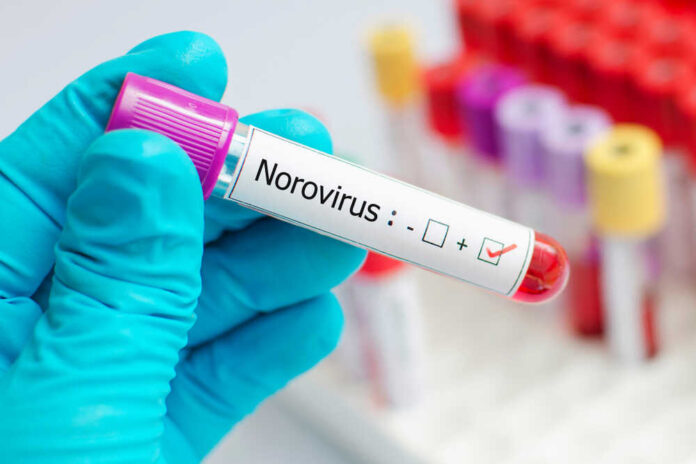
(DCWatchdog.com) – The United States is currently experiencing a significant increase in norovirus infections, especially in the Northeast, according to recent CDC data.
This highly contagious virus leads to symptoms such as vomiting and diarrhea, and it can affect anyone.
The CDC warns, “Norovirus is a very contagious virus that causes vomiting and diarrhea. Anyone can get infected and sick with norovirus.”
Contrary to some beliefs, norovirus is not the same as the flu. “Norovirus is sometimes called the ‘stomach flu’ or ‘stomach bug,'” the CDC explains, “However, norovirus illness is not related to the flu, which is caused by influenza virus.”
The transmission of norovirus is notably unsettling. According to the CDC, “You can get norovirus by accidentally getting tiny particles of feces (poop) or vomit in your mouth from a person infected with norovirus.” It’s also spread through consuming contaminated water or food. A notable outbreak linked to a sushi restaurant last December affected 241 people.
Norovirus thrives in densely populated settings, such as schools and cruise ships, which saw a record 13 outbreaks before July last summer. To combat the spread, the CDC advises thorough handwashing with soap and warm water for at least 20 seconds. They caution that hand sanitizer “does not work well” against norovirus, a stance supported by the Mayo Clinic, which recommends choosing soap and water over alcohol-based sanitizers.
Most common symptoms appear during the first 12 hours of exposure and they last between 1 to 3 days. this illness can cause vomiting, diarrhea, and stomach pain.
Good news is that most people who get infected can recover all by themselves in a matter of days, even hours, and the only thing they need is to keep hydrated and follow over-the-counter remedies because all of this will make the patient feel better in most cases, avoiding a costly hospital visit, but if the patient doesn’t show improvement on their health going to the hospital might be best.
According to the Mayo Clinic people with higher risk of being infected and suffering severe dehydration are children, old citizens, and people with existing medical conditions, and in case they get infected it would be best if they get medical attention immediately.
Signs people should look after are fatigue and dry mouth, and for children you should be concerned if the child cries without tears or unusual irritability.
In cases of extreme dehydration, it may be best to go to the hospital and receive treatment with intravenous fluids.
















